The Pope sparked debate yesterday by claiming there are limits to freedom of expression.
Speaking to journalists on a Papal visit to the Philippines, Pope Francis was in discursive form commenting on the aftermath of the Charlie Hebdo attacks in Paris last week.
While the head of the Catholic Church condemned the attacks and called violence in God’s name ‘horrific’ and an ‘aberration’, he also said that people should not be surprised if there are repercussions when religions are attacked.
He said: “You cannot provoke. You cannot insult the faith of others. You cannot make fun of the faith of others…There is a limit. Every religion has its dignity… in freedom of expression there are limits.”
Illustrating his point, the Pontiff aimed a jokey punch at his aide Alberto Gasparri, saying: “If my good friend Doctor Gasparri says a curse word against my mother, he can expect a punch.
“There are so many people who speak badly about religions, who make fun of them, who make a game out of the religions of others. They are provocateurs. And what happens to them is what would happen to Doctor Gasparri if he says a curse word against my mother. There is a limit.”
MM took to the streets of Manchester to see whether people agreed there should be limits to criticism of religion.
Should there be limits on how much we criticise or ridicule religion?
| Yes | No |
| 44% | 56% |
Fergus Macphee, 20, a student of Drama and Screen Studies, disagreed with the Pope’s comments.
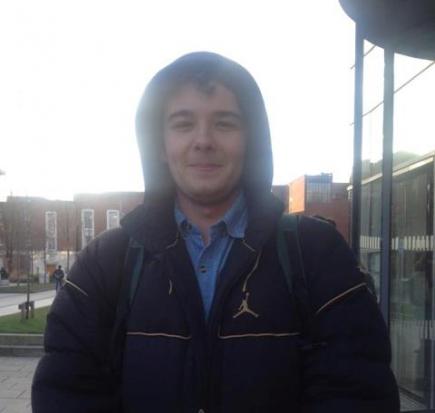
IT’S YOUR OPINION: Fergus thinks that people shouldn’t be afraid of expressing their freedom of speech
He said: “I think you do have a right to criticise religions if you want, and freedom of speech should be an absolute right.
“Publishing a drawing of Prophet Mohammed on the cover probably wasn’t the wisest thing to do, but you’ve got the right to if you want.
“It’s dangerous if we start cutting back on those rights for fear of offending different groups.”
Alex Oliver, a 22-year-old from Manchester, agreed that the right to criticise religions should be absolute.
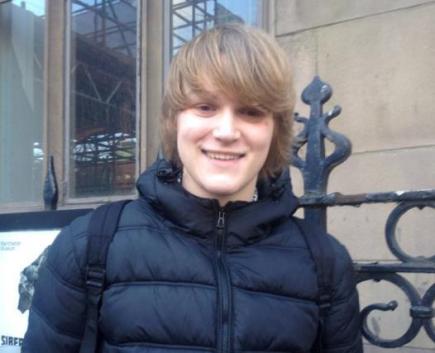
FREE SPEECH MEANS FREE SPEECH: Alex, 22, believes journalists should publish what they like
The restaurant worker said: “You should totally be allowed to criticise. We’re all entitled to our opinion.
“We’re told that we have freedoms and that we have freedom of speech, but that’s not really the case if you have to tell Governments what you’re up to.
“Being told ‘You can’t write this’ or ‘You can’t say that’ just reminds me a bit of being back in primary school. You should be able to publish what you like.”
Student James Sutherland, 20, said: “Definitely, you have the right to criticise religions, though there are limits to freedom of speech. I don’t think you should be obliged to listen to racism.”
Gym instructor David Williams, 35, from Bolton, said: “I think it’s very important you have the right to criticise religion without repercussions, so I disagree with the Pope.
“I’m glad so many people are standing up for free speech and there’s been such a big backlash after the killings in Paris.
“Though I do think some of the leaders supporting it are hypocrites. People have been arrested for shouting at David Cameron and yet there he is marching and talking about how important free speech is. He should practice what he preaches – to use a religious term.”
Paul Smith, 52, a newsagent from Birmingham, also thought freedom to criticise religion is important.
He said: “I don’t agree with the Pope but then the Catholic Church is hardly the most open organisation. They’ve got a few scandals of their own they’d like to keep undercover, so I’m not surprised he’s not taking a stand for freedom of speech.
“I think saying ‘Freedom of speech is important – but there are limits’ is a nonsense. You either have it or you don’t.
“Millions more people have seen those Charlie Hebdo cartoons than if their offices hadn’t been attacked so I’m comforted to think that attempts to attack freedom of speech like this usually backfire.
“Anything that’s banned or controversial always has its own interest.
“I’m not sure I’ll be stocking the magazine, only because I’m not sure my distributors have it, but I’d be willing to. I think it’s an important principle.”
Samman Mahmood, a student, 21, was concerned about how much of the debate following the Paris attacks had centred on the right to criticise Islam.
“There’s no justification for what happened in Paris,” said Samman. “To no extent should anyone have been killed for what they wrote, but speaking as a Muslim I do ask why people want to insult my religion.
“Why are people marching in Paris for the right to publish really hurtful cartoons about us. That’s just singling Muslims out.”
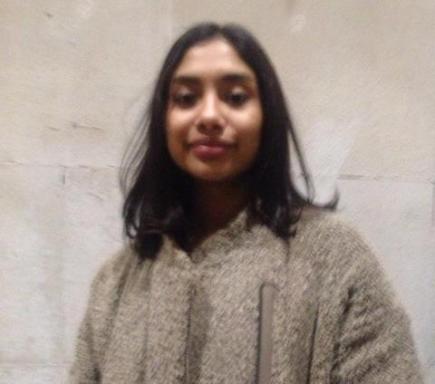
VICTIM OF ISLAMOPHOBIA: Sabarah tells MM her own racist experiences in Manchester
Sabarah Islam, an 18-year-old sixth form student, also voiced concerns about double standards in France, saying: “Muslim women in France don’t have freedom of expression as this is a country where the hijab is banned. 900 women were imprisoned last year for wearing the hijab and I think it’s disgusting.
“Free speech is not just for white people. It has to work both ways if you’ve got a right to publish anything, and you’ve got a right to wear a cross if you’re a Christian, or a cap if you’re Jewish, you should have the right to wear a hijab if you’re a Muslim.
“A lot of Charlie Hebdo’s cartoons were very offensive. For example when the 300 girls were kidnapped by Boko Haram in Nigeria, the magazine called them ‘Welfare Queens’ and made fun of them. It’s just really nasty.”
Sabarah went on to describe contempt she faced right here in Manchester after the Paris attacks.
She said: “I think the coverage of the situation in France is very one sided, and people wouldn’t really know from the media that Muslims have been the victims following it.
“There have been 16 attacks on mosques around France in the last four days which I haven’t seen covered.
“I was on the bus in Manchester the other day after the attacks – just me and one other Asian woman and a man got on and started shouting at us that we were terrorists shouting ‘Muslims, get off the bus! You should all go home.’
“It was really upsetting and disgusting. I agree with the Pope, man. The Pope is cool.”
Caitlin Colquhoun, also 18 and in her last year at sixth form in Manchester, believes there can often be a thin boundary between criticising religion and racism.
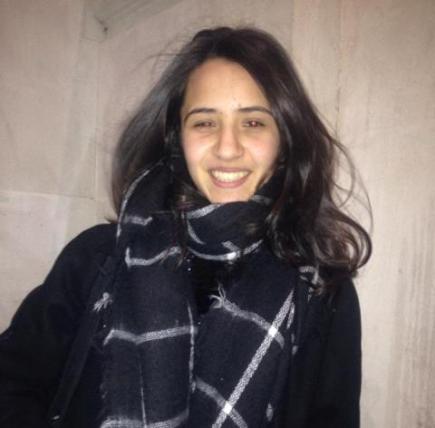
CHARLIE HEBDO ARE ‘TROLLS’: Caitlin argues the newspaper is taunting Muslims
“Charlie Hebdo passes it off as satire but often it’s just normalising Islamophobia,” explained Caitlin.
“I’m not a Muslim but it makes me really angry. I think printing the magazine this week with another cartoon of Mohammed, and focusing solely on that is a bit unfair.
“Maybe it should have been a compilation of all of their stuff. Showing Mohammed is a bit like going up to someone who you know is already upset and taunting them. They’re trolls.”
Susan Anderson, 39, a receptionist from Stockport, broadly agreed with the Pope’s comments, explaining that she too would feel offended if Christianity was taunted in a similar way.
She said: “I can see what the Pope means. You shouldn’t go out of your way to provoke people and cause offense.
“Those cartoons would really upset millions of Muslims who aren’t radicals, or terrorists, but are just getting on with their lives.
“Why should they be upset because some whackos are killing people?
“I’d be offended if I saw a really offensive cartoon of Jesus so I can see how they feel. It just seems a bit unnecessary.”
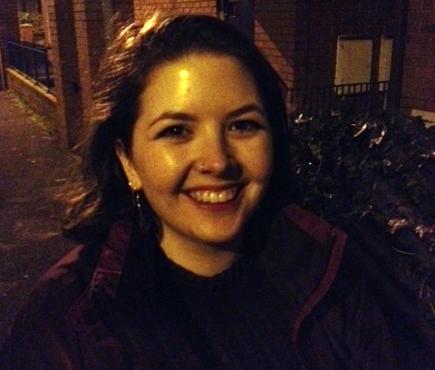
FREE SPEECH NOT RACISM: Freya believes there’s a fine line between free expression and racism
Freya Potter, 22, who works at Manchester Students’ Union, said: “I think criticism of religion of religion has to be seen in relation to the existing power structures in society.
“Muslims in France are a minority group and criticism of Islam often has to be seen through a prism of the legacy of Colonialism and presenting Muslims as ‘the other’.
“Of course freedom of speech is important but so is what you’re saying. It shouldn’t just be a license for racism.”
Image courtesy of Jennifer Moo, with thanks.



